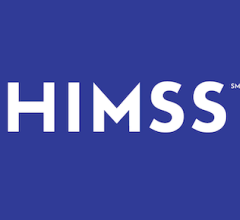
March 30, 2020 — The medical imaging community around the world is uniting to help address the COVID-19 pandemic. The Radiological Society of North America (RSNA) continues to build on its extensive body of COVID-19 research and education resources, announcing a new initiative to build a COVID-19 Imaging Data Repository.
The open data repository will compile images and correlative data from institutions, practices and societies around the world to create a comprehensive source for COVID-19 research and education efforts. The image hosting, annotation and analysis framework will enable researchers to understand epidemiological trends and to generate new AI algorithms to assist with COVID-19 disease detection, differentiation from other pneumonias and quantification of lung involvement on CT for prognosis or therapy planning.
“RSNA is committed to accelerating collaborative research and education on the uses of medical imaging to address diagnosis and imaging-based treatment of COVID-19,” said Curtis P. Langlotz, M.D., Ph.D., RSNA Board Liaison for Information Technology and Annual Meeting. “Because RSNA is a leader in connecting radiologists around the world, we have received a wave of requests from organizations interested in sharing imaging data, as well as from individuals and organizations seeking access to such data for research and education.
In response to these requests, RSNA is releasing a survey for representatives of radiology organizations that may be willing to share COVID-19-related imaging data. The survey will help RSNA collect all available resources into a unified repository for international COVID-19 imaging research and education efforts.
This initiative builds on RSNA’s long history of enabling image data sharing, research and technologic innovation. For more than 20 years, RSNA has sponsored the development and implementation of data standards, including DICOM, IHE, RadLex, Image Share and QIBA. In the past few years, RSNA has helped accelerate research into the application of artificial intelligence (AI) in medical imaging by collecting and labeling data and organizing competitions that engage thousands of teams to test the ability of AI systems to perform clinically relevant tasks.
Like those efforts, the success of the COVID-19 Imaging Data Repository will depend on collaboration with many other interested organizations. Today, RSNA is announcing an agreement to collaborate closely with the European Imaging COVID-19 AI initiative, supported by the European Society of Medical Imaging Informatics.
The organizations expressed the common goal of creating a secure way to share COVID-19 imaging, in order to assess lung involvement more accurately with AI. They will collaborate to enable hospitals to provide imaging data securely and efficiently with researchers, respecting privacy and ethical principles. They will define and publish protocols for selecting and labeling imaging data associated with COVID-19 as a tool for researchers and practitioners. Other interested organizations are invited to join this coalition to share information and facilitate a rapid response to COVID-19.
Organizations are requested to use the survey form linked here (bit.ly/rsna-covid-data) to provide information about COVID-19 imaging data they may be willing share for research. Responses are requested by April 15, 2020.
For more information: www.rsna.org
Related Coronavirus Content:
VIDEO: Use of Telemedicine in Medical Imaging During COVID-19
VIDEO: How China Leveraged Health IT to Combat COVID-19
CDRH Issues Letter to Industry on COVID-19
Qure.ai Launches Solutions to Help Tackle COVID19
ASRT Deploys COVID-19 Resources for Educational Programs
Study Looks at CT Findings of COVID-19 Through Recovery
VIDEO: Imaging COVID-19 With Point-of-Care Ultrasound (POCUS)
The Cardiac Implications of Novel Coronavirus
CT Provides Best Diagnosis for Novel Coronavirus (COVID-19)
Radiology Lessons for Coronavirus From the SARS and MERS Epidemics
Deployment of Health IT in China’s Fight Against the COVID-19 Epidemic
Emerging Technologies Proving Value in Chinese Coronavirus Fight
Radiologists Describe Coronavirus CT Imaging Features
Coronavirus Update from the FDA
CT Imaging of the 2019 Novel Coronavirus (2019-nCoV) Pneumonia
CT Imaging Features of 2019 Novel Coronavirus (2019-nCoV)
Chest CT Findings of Patients Infected With Novel Coronavirus 2019-nCoV Pneumonia


 February 17, 2026
February 17, 2026 









